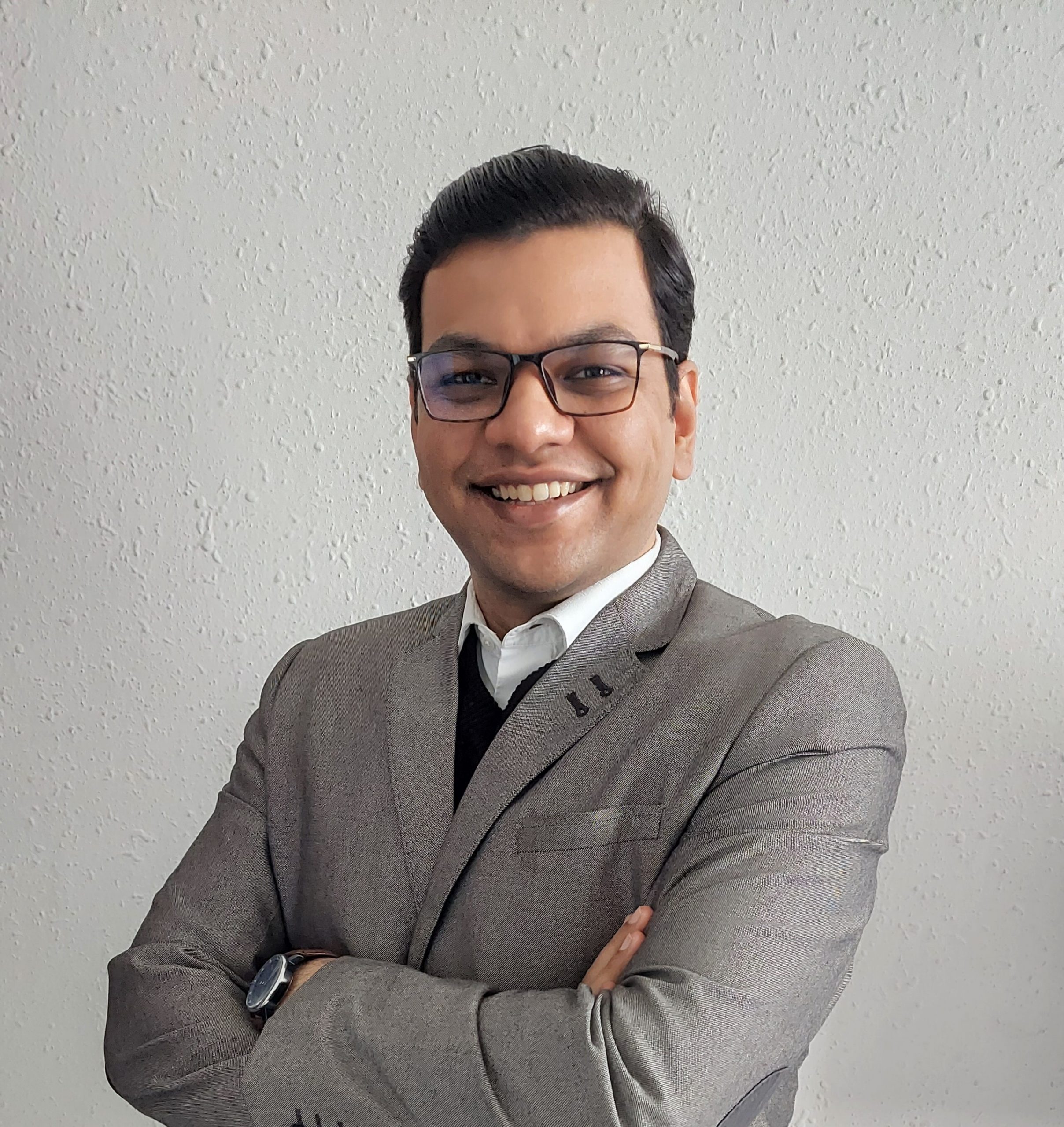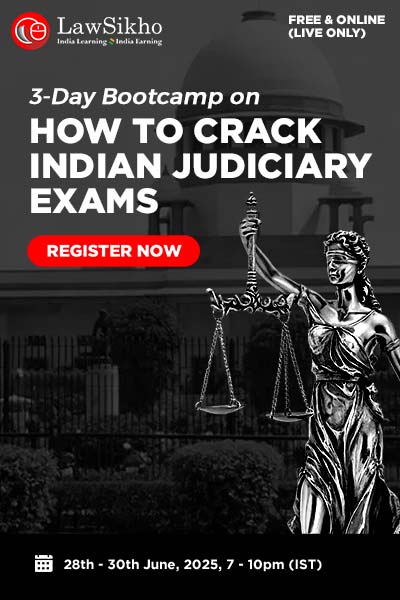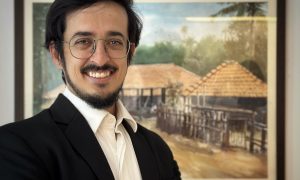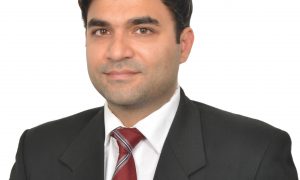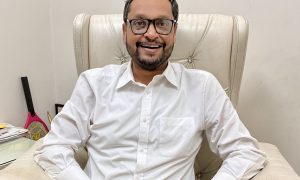This interview has been published by Anshi Mudgal and The SuperLawyer Team
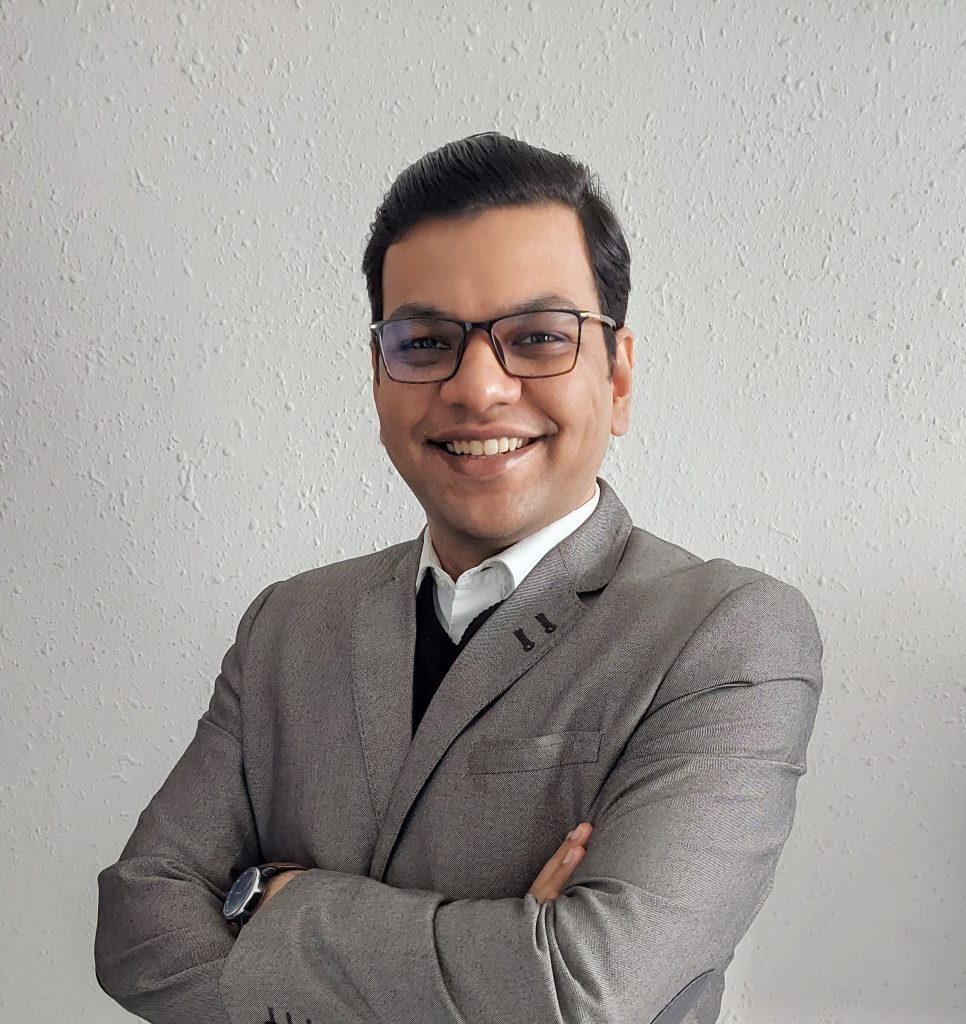
With nearly a decade of experience in law, what first inspired you to pursue this profession? Was it a conscious decision from the start, or did it naturally evolve over time?
Law did not seem a natural choice for me initially. I pursued science post 10th Boards and was leaning towards a career in engineering. However, within a few months into the 11th standard, I realised I was not made for a career in science. Also, I always wanted to do something different. While I was exploring a few options, based on what was my worldview at that age, one of my close family friends chose law and that is when I tried to imagine if that is something I would enjoy. By 12th standard I knew, law was the way to go. It stunned a lot of people in a small town where engineering and medicine seemed like the only options for science students. But I had made up my mind and haven’t looked back since.
After completing your law degree, you went on to pursue an LL.M. in International Banking and Finance Law from University College London. What motivated you to choose this particular university, and how has your academic journey there contributed to your success in your career? Could you also share some experiences or challenges you faced during the admission process or while studying at UCL?
Initially I had not even imagined that pursuing an LLM abroad would be one of the options I had. But my father encouraged me to seriously consider it. I was clear that I eventually wanted to pursue Litigation and Arbitration back in India.
Since the UK is the home to common law and a lot of Indian law has evolved from the British era, choosing to pursue my LLM in the UK became a natural choice.
I researched online and had discussions with a few people who had already pursued their education abroad. The general consensus was that I should look for the professor under whose guidance I would want to write my thesis rather than only selecting a college / university. At that time my interest was in International Law of Foreign Investment and Treaty arbitration. Which is why I wanted to pursue my Master’s under Dr. Martins Paparinskis whose profile was something I was drawn to. He taught both these subjects at University College London in 2015-16.
The experience at UCL was exhilarating. Their style of teaching taught me the discipline of self study even before the lecture begins. We had the entire curriculum for the semester in our hands even before the introductory lecture. The focus was on discussions on the topics we were already supposed to have read up on and only to clear doubts based on the preliminary reading. Of the 4 subjects I had chosen, we only had only one lecture of two hours per subject in a week, giving us ample time to read before and after the lecture. This encouraged us to think independently which was the biggest takeaway from the course.
One of the most important courses I took up at UCL was the Academic English Writing Course. It was open to all and was a course which would help us write our thesis. This course has had immense long term impact on my career, as it was the seed which led to my academic writing bug later on and also for establishing the Arbitration Workshop Blog.
Honestly, the admission process was very streamlined. But I would be remiss in saying that I did everything on my own, I was given guidance by an education consultancy service in India. They were very clear that they would only guide me through the process while I focussed on preparing my essay for the selection process. They encouraged me to dig deep and write the essay based on my life and why I was the best candidate to secure a place in the master’s programme at UCL. The actual course work at UCL was enjoyable. Since we were non-europeans, we were also given the first preference in the hostel accommodations run by the University. To some extent the only challenge I faced was preparing my own meals as I chose an accommodation which did not have a mess but had kitchens on individual floors spread between 5 flatmates. But even that became enjoyable over the course of time.
Following your master’s, you worked as a legal assistant to Justice A.K. Patnaik (Retd.), Former Judge of the Supreme Court of India. What were your early experiences like in that role, and how did they shape your understanding of the law? Are there any values or insights from that time that you still carry with you today?
It was the greatest introduction I could have had in the legal profession. I was the first legal assistant he had hired since his retirement from the Supreme Court and since his foray into arbitration. The one-to-one mentorship with him was a great learning experience. I got introduced to the practical aspects of contract law during my tenure with him and that has shaped my expertise. The practice of arbitration is associated more with contract Law rather than arbitration law and the fundamental aspects of contract law that I learnt on the job helped me immensely in my academic writing.
He had a terrific library on domestic and international contract law which broadened my horizons. I got into the habit of reading those books during my free time. One of the most important lessons he taught me was don’t rush after judgments. Read the statute first and try applying the law to the facts before moving on to judgments which explain the grey areas of law.
When drafting arbitration awards for construction contracts, particularly regarding issues like delays in land handover, scope changes, and termination payments, what were some of the key legal challenges you faced?
The key issues with constructions contracts were liquidated damages clauses which capped the damages for losses that occurred due to breaches on the part of the employer, such as delay in handover of land / right of away. It created a conundrum where an employer who had hopelessly delayed in handing over of the land or was in breach of an obligation under the contract, was still not liable for the damages to the extent sought by the Contractor, as there was either an exclusion clause or a liquidated damages clause. This is an interplay between Section 73, 74 and 55 of the Contract Act read with Section 23 of the Arbitration and Conciliation Act, wherein the terms of the contract, however absurd, governed the jurisdiction of the arbitral tribunal.
As far as change of scope of work is concerned, the disagreement stemmed from whether something amounted to change of scope of work or was it within the original scope of work. I can recall a case wherein the contractor had intimated to the employer that as part of the original objective of constructing the road, there was certain additional work that was required to be done such as shifting of certain pipelines which were not contemplated within the original scope of work. The contractor sought for the approval, however, never received the same. But as the same was necessary to move forward with the construction, they carried out the additional work and raised invoices towards it later. The Employer however rejected the invoices as they had not been approved. In such a scenario, arbitral tribunal had to rely on principles of contract law to hold that the Employer had by its conduct approved the changes, as it never objected to the same contemporaneously, and accordingly the contractor was granted the claim towards the additional work done as part of the construction.
Termination payment also is a complex issue. Concession agreements provide termination payment to be made to the contractor in the event of a termination of the contract, either rightful or wrongful, the quantum however being different. Such termination payment clauses are unique to concession agreements as in the DBFOT model, the concessionaire is not just responsible for the construction but also the financing among other things. In cases of termination payment, therefore, the issue of liability becomes very highly contested. Also, the quantification of termination payment used to be very complex and used to have certain grey areas, which made the calculation itself difficult. In cases where the parties spent maximum amount of time on the liability, if the issue of quantification was left unresolved, it became a challenge for the arbitral tribunal to understand the calculation methodology under the contract. This could lead to disagreement over the calculation itself and was particularly challenging on a few occasions while drafting the arbitral award in the office of Justice A.K. Patnaik.
Can you share some of the most difficult aspects of representing public sector insurance companies in arbitration or before the National Consumer Disputes Redressal Commission?
While dealing with any public sector undertaking, the most crucial aspect is documentation. If contemporaneous documents are available clearly pointing out the issues / approvals etc during the project being carried out, it becomes easy to represent PSU’s. However the lack of documentation / decision making during the project approval / execution stage makes it difficult to successfully represent the PSU. Further, cases of Insurance come within the scope of Consumer Forums which are summary in nature and hence it becomes difficult to protect the interest of the Insurance Companies since the fora generally are established to protect the interests of the consumer. Insurance law is very technical and certain principles of law, such as, uberrima fides or utmost good faith are only applicable to insurance law. A perusal of various judgments and orders from the District and State fora indicate they do not truly apply these special provisions of law relating to Insurance Contracts and therefore the matter has to unfortunately be appealed to the National Commission. Even at the National Commission and Supreme Court level there is a dearth of the judgments which explain in detail the the unique principles of insurance law which should be applicable to various issues which the district and state fora can utilise and apply. This is one of the greatest challenge of defending a PSU Insurance company or any insurance company for that matter.
Having worked on complex arbitral awards and challenges involving patent illegality and public policy, how do you craft compelling arguments when challenging such awards, particularly when dealing with contract violations or lack of sufficient evidence?
The challenge of arbitral awards is very tricky as the scope is extremely limited. Patent Illegality, as the term itself suggests, stipulates that the award should be illegal on the face of it and should not be just an alternate interpretation of the award. When challenging an arbitral award, the argument which is most convincing is, when the arbitral tribunal has gone beyond the contours of the contract or the law and given a conclusion so absurd that it falls foul of the reasonable man standard. It is rare to get a clear contract violation on the part of the tribunal and if there is such a case, the same falls squarely within the scope of the provisions of arbitration law for setting aside the award.
In some cases when the tribunal grants a particular award on the basis of equity the same becomes a valid ground to challenge the award when the parties have not permitted the tribunal to do so. In such cases it is best to stick to the point and not beat around the bush about each aspect of the award in an attempt to try all possible challenges and hoping one will stick. The more precise the argument and draft, the easier it is to convince a court of the patently illegal nature of the award.
The arbitral tribunal is considered the master of the evidence, and they have the power to decide the admissibility, relevancy, materiality and weight. Insufficiency of evidence therefore is not a ground for setting aside an award. This is because if there is some evidence, the tribunals are allowed to extrapolate and do intelligent guesswork basis the documents available for the merits of the claim and the quantification of the claims. It is only in cases where there is no evidence that an award made by the tribunal can be set aside. Although the Evidence Act (now the (Bhartiya Sakshya Sanhita) is not applicable to arbitration, the well known principles continue to apply. Hence when the tribunal applies some of these principles incorrectly, it gives an additional yet narrow window of opportunity to the judgment debtor to challenge the award. The crafting of the arguments in this regard therefore are on the lines that the principles of evidence which should have been applicable, have either not been applied or have been applied incorrectly.
The above are broadly the methods one can follow to challenge an award on the ground of violation of the contract or lack of evidence.
Looking back at your career, what project or initiative has been the most rewarding for you? What made it particularly significant, both professionally and personally?
The Arbitration Workshop Blog, hands down, has to be the most rewarding project of mine. The initial idea and what it has turned into is surreal for both me and Gautam (my co-founder). The positive reviews I have received from people and the recognition it has given me in the legal circles warms my heart every time. We started the blog before the pandemic and consistently delivered through thought provoking deep dive articles, which is why I believe we have received continued patronage from our readers. It has also become a research tool as many of our hits are straight from google search. I hope we are able to carry on the same way and build it into something bigger, while remaining true to our core principles of creating a more informed arbitration bar and to always deep dive on an issue and discuss the entire jurisprudence, to make it a one stop shop for academic and practitioners alike.
Given the demanding nature of your career, how do you maintain a healthy work-life balance? Also, how do you ensure your well-being safeguarding your personal health and happiness?
Honestly it has been tough to maintain a work life balance. To put it bluntly, personal health does take a toll. In which case it is important to find ways to find your happiness and make sure you put efforts towards it whether it comes from work itself or from your side project. Also, finding 15 mins to 30 mins a day is only possible if you take a definitive stance that working out or eating right is most important to putting in long hours in this profession. I prefer playing table tennis in the evenings and working out in the morning at my home, so that it gives me the mental toughness of working through the day. Funnily enough, physical activity makes me more energetic.
Everyone needs to find their career, fitness and mental health goals and then balance it out. Because one size does not fit all. Most importantly balance does not mean that your day should be balanced. It could also be that you may have 3 hectic days. It is then important to take light on the 4th day and have the regular balanced days thereafter. The above scenario should not be considered as break in the routine, but rather a vehicle moving full speed ahead, which has gone a little off track, post which you take control and steer it back to the centre.
What advice would you give to aspiring lawyers who want to make an impact across diverse areas of law, as you have? Are there any resources or strategies you would recommend for staying up-to-date in the constantly evolving legal field?
My go to practice is reading judgments straight from High Court websites. I track the roster which is currently deciding the matters which are of interest to me and accordingly, read judgments written by them. I start from the bottom so that I know what the court has decided and thereafter read from the top if it is of some interest to me. This has kept me in good stead over the years as I have maintained a digital notebook of these judgments and thereafter used it as a personal repository to research whenever I am faced with an issue of contract law or arbitration. The judgments also give me ideas to write something on a grey area of law which fuelled my writing career. There is no substitute to reading the original judgment, as articles generally are an interpretation of the judgment by the author of the article. The above practice also helps in increasing the speed of reading judgments and to give us a certain comfort while reading judgments. I am sure this practice will help any young professional aiming to improve their professional standing.
Get in touch with Gaurav Rai –

